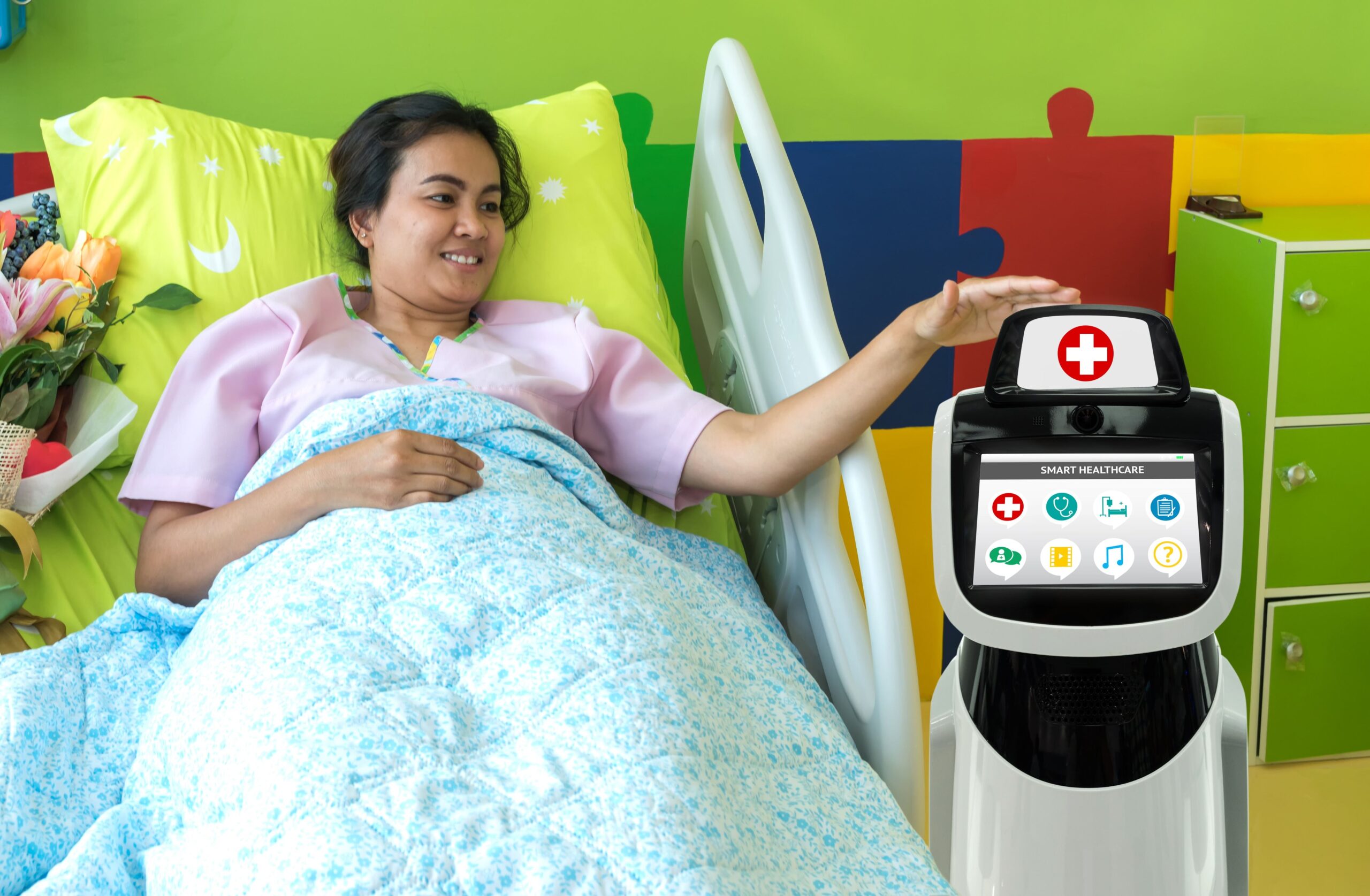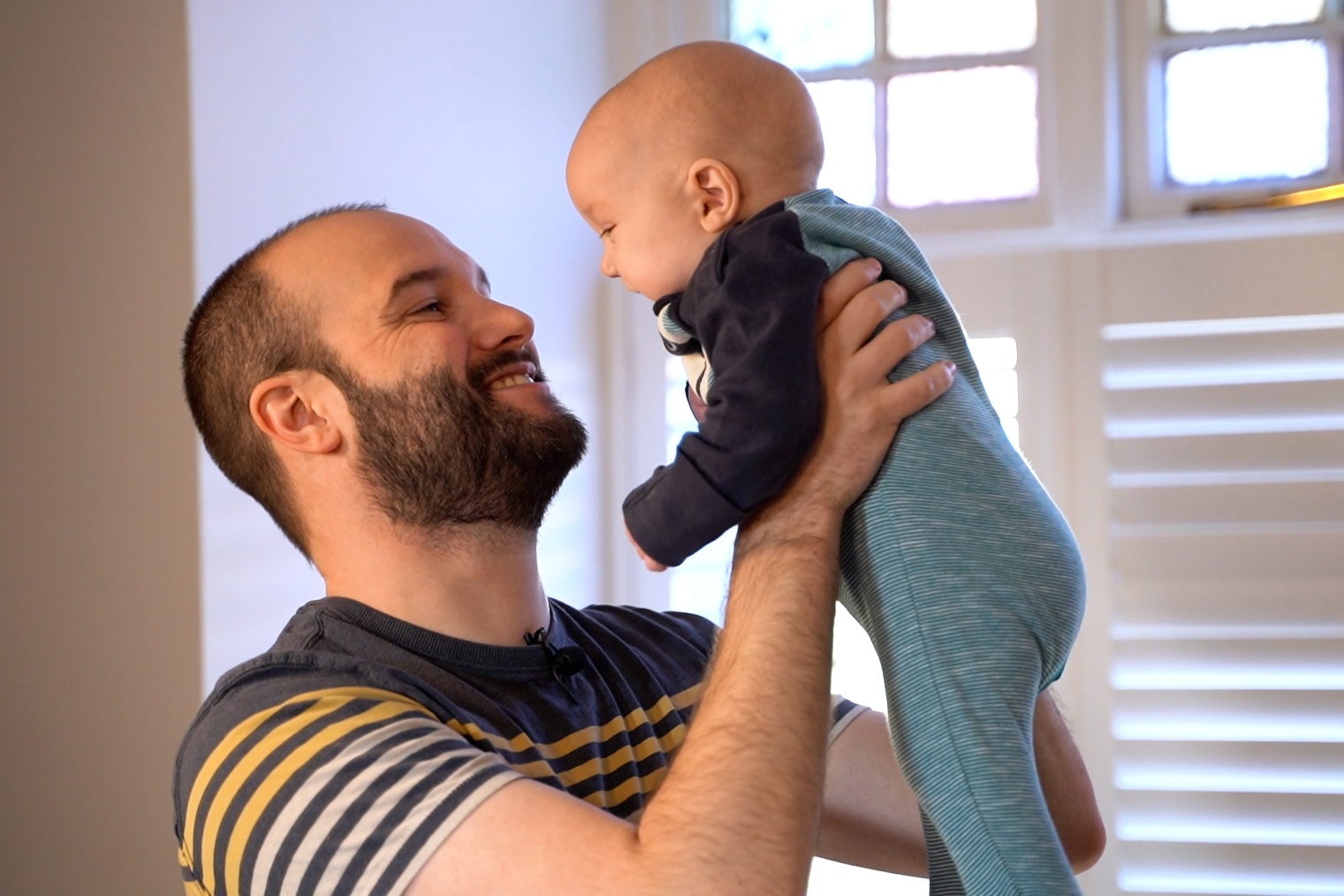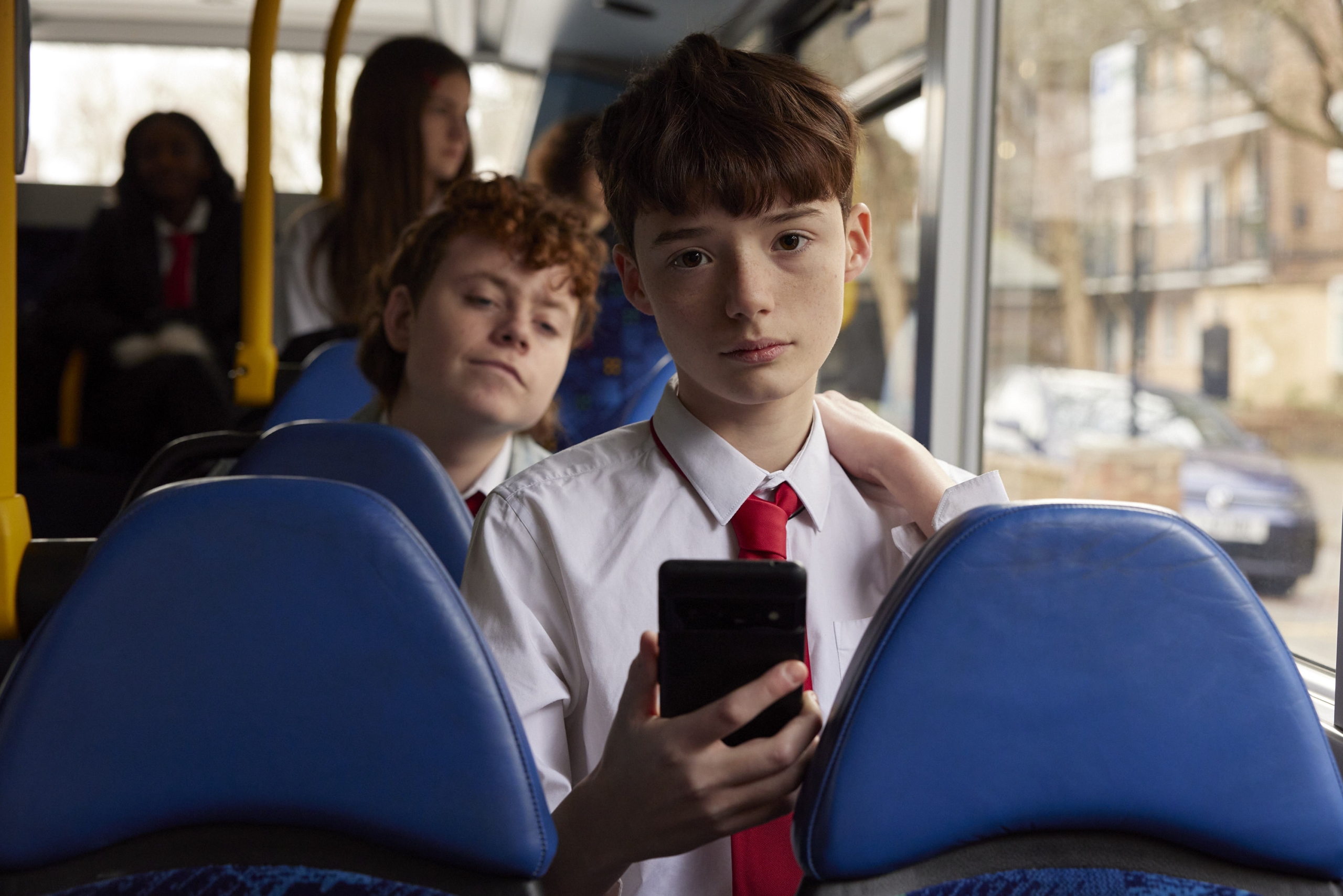Will AI chatbots and autonomous robots put many of us out of a job? Or will AI help improve our work lives and even create new jobs?
The robots are coming! They’re gunning for your job and – here’s the kicker – they are far better at it than you are. Soon, Artificial Intelligence (AI) will replace journalists, surgeons, taxi drivers, song writers. In fact, few careers are safe, we’re repeatedly told.
And yet… is that the whole story? There is a growing view that, in many ways, AI will make our lives better, both at work and at home.
“AI can take some of the repetitive tasks off us,” says Liz Hardwick, digital productivity specialist, speaker, trainer and member of WeAreTechWomen.
While it may seem daunting, “just think of AI as the latest addition to your tech tools, like the Palm Pilot or the first-generation iPhone once seemed to you,” she suggests. Most of all, don’t bury your head in the sand: “Understanding its capabilities is the first step to better harnessing AI for your benefit.”
Improve your work life
So will AI really render us all redundant? When PwC ran the numbers, it came to a heartening conclusion.
“Any job losses from automation,” wrote the report authors, “are likely to be broadly offset in the long run by new jobs created as a result of the larger and wealthier economy made possible by these new technologies.”
ChatGPT: What impact could it and other AI bots have on our kids’ learning?
The artificial intelligence chatbot ChatGPT, created by OpenAI, has been grabbing headlines of late, but will it be a good or bad thing for children's education?
This optimistic take is far from unique. In its Future of Jobs Report 2020, the World Economic Forum foresaw 85 million job losses across 26 countries by 2025, because of AI. The flipside? Ninety-seven million new jobs would be created.
It gets better. When, in 2019, MIT surveyed 2,300 global business leaders, nearly half strongly agreed that, thanks to AI, “we could dedicate more time to thinking creatively about the business challenges we (and our clients) face.”
Your job could become more interesting, as more of the drudgery – those repetitive, even dangerous tasks – gets delegated to AI.
“AI will replace repetitive and technical tasks – think emails, multi-step processes such as updating documents, or sending one bit of data from one place to another,” says Ms Hardwick. On the other hand: “AI will struggle to replace human interactions, empathy, knowledge processing or creative ideas.”
It’s nuanced, though. Last year, a study found that “as firms invest in AI, they tend to transition to more educated workforces, with higher shares of workers with undergraduate and graduate degrees, and more specialisation in STEM fields [that’s science, tech, engineering and maths] and IT skills”.
Why your teen's gaming habit could land them a better job
Parents often worry that their kids are spending too much time playing video games, but the latest research suggests that the skills they pick up from gaming could actually improve their employment prospects.
So start upskilling, now.
“Areas such as people management and digital skills are key,” says Ms Hardwick. Meanwhile: “humans will always be needed to set up, manage and facilitate AI interactions and processes, so learning what AI is, what it can do, and how you can help it ‘learn’ will enable the current workforce to take better advantage of AI, rather than being replaced by it.”
Make yourself more hirable
“Many organisations are turning to using AI and machine learning algorithms in their selection process,” says Dr Sara Ahmed, from the Future of Work Research Centre at the University of Surrey.
While surveys suggest that job applicants are wary of this method, and that current AI might not be completely free from bias, “using AI in HR practices can learn from previous errors in the system and improve the new version to reduce biases and discrimination,” she says.
It can also free HR teams from a lot of admin. “This can help us focus on upskilling workers or employees to take highly-skilled jobs,” says Dr Ahmed, “thus improving the efficiency and performance of individuals, organisations and societies.”
Hack your commute
More than $100bn (£83bn) has now been invested in developing ‘driver-assistance systems’ for cars and the UK Government has said that fully driverless cars could be on British roads by 2025, arguing that they will boost the economy and improve road safety, too.
How Vodafone's Edge Innovation Programme will 'enable the technology of the future'
Vodafone's UK Business Director Nick Gliddon went to Milton Keynes to talk about how Multi-access Edge Computing could help driverless car software start-up, Imperium Drive, improve its car rental app.
They might also save you a huge amount of time. Think of the hours you clock up behind the wheel. Last year, a survey suggested Brits spend a whole year of their adult lives sitting in traffic. Imagine how you could use that time if your car took the wheel. Might you finally write that novel, or study some of those STEM skills so vital in the modern economy?
The transition, though, could be nerve-wracking and take longer than the Government thinks. According to a new survey, nearly 70% of drivers are now afraid of fully self-driving cars. That’s up from 55% last year.
Free you from housework
A 2023 study published in the journal PLOS ONE concluded that nearly 40% of the time that is currently taken up on unpaid domestic labour could be automated within a decade.
Pixel 6 and iPhone 13: How smartphones are now clever enough to coach you at tennis
Artificial Intelligence (AI) now lives inside the brain of the latest smartphones, opening up intriguing new possibilities in the apps we use, from tracking your tennis swings to helping you sing your heart out.
“Considering that people currently spend almost similar amounts of time on unpaid work as they do on paid work, the social and economic implications of this future of unpaid work could be significant,” write the authors. “It could free up additional hours from people’s lives for paid work and leisure, especially for women.”
The researchers at the University of Oxford, and their colleagues in Japan, found that the most automatable task was grocery shopping (at 59%).
Some jobs, though, will still require a human touch. Physical childcare, for example, was ranked as the least automatable (at 21%). And – perhaps tellingly – the British men involved in the study proved more optimistic about domestic automation than their female counterparts.
Boost your health
AI is already transforming all aspects of healthcare, from screening and diagnosis right through to surgery.
“This will reduce the cost of care, and improve outcomes, simply because things will happen earlier, faster, and better,” according to Dr Aldo Aisal, Director of Imperial College London’s UKRI Centre for Doctoral Training in AI for Healthcare.
This is good news for us all.
Prof Shafi Ahmed: 'Technology will completely transform healthcare'
Professor Shafi Ahmed, world-renowned cancer surgeon and Vodafone Connected Health Ambassador, explains how technology and data-driven medicine are improving healthcare in the UK and globally.
But what about the doctors who used to do this work? Will they be out of work? Not according to Dr Aisal: “Rather than replacing people with machines, creating unemployment, we foresee this as a way of dealing with the growing unmet need for clinical care.”
Saving the environment
Last year, Boston Consulting Group concluded that AI is essential to solving the climate crisis. When it surveyed global climate and AI leaders, 87% agreed that advanced analytics and AI are helpful tools in the fight against climate change today.
AI helps improve Vodafone’s pan-European network
Vodafone uses big data software, based on tools from Google Cloud and Cardinality.IO, to improve mobile network planning decisions.
The consultants estimate that companies can meet up to 10% of their carbon reduction goals simply by using AI that collects data, makes connections that humans fail to notice, and then recommends actions.
AI, it seems, might make your work life more interesting, your world less polluted, and your free-time freer. It doesn’t have to end up like a dystopian mash-up of the Matrix, Terminator and Westworld movies.
Stay up-to-date with the very latest news from Vodafone by following us on Twitter and signing up for News Centre website notifications.

![Young woman waiting for job interview indoors [Adobe Stock] stock image of a young woman waiting for job interview indoors](https://www.vodafone.co.uk/newscentre/app/uploads/2024/06/2-Young-woman-waiting-for-job-interview-indoorsAdobe-Stock.jpg)


![black and white photo of a girl's face with smoke [Adobe Stock] an AI-generated stock image of a girl's face partially covered in smoke](https://www.vodafone.co.uk/newscentre/app/uploads/2024/05/black-and-white-photo-of-a-girls-face-with-smoke-Adobe-Stock.jpg)


![girl smiling confident voting at electoral college [Adobe Stock] stock photo of a girl smiling while confidently voting at a mock election](https://www.vodafone.co.uk/newscentre/app/uploads/2024/05/girl-smiling-confident-voting-at-electoral-college-Adobe-Stock.jpg)

![mother with daughter with smartphone in snowy weather [Adobe Stock] stock photo of a mother outside in snowy weather with her daughter while using a smartphone](https://www.vodafone.co.uk/newscentre/app/uploads/2024/02/mother-with-daughter-with-smartphone-in-snowy-weather-Adobe-Stock.jpg)
